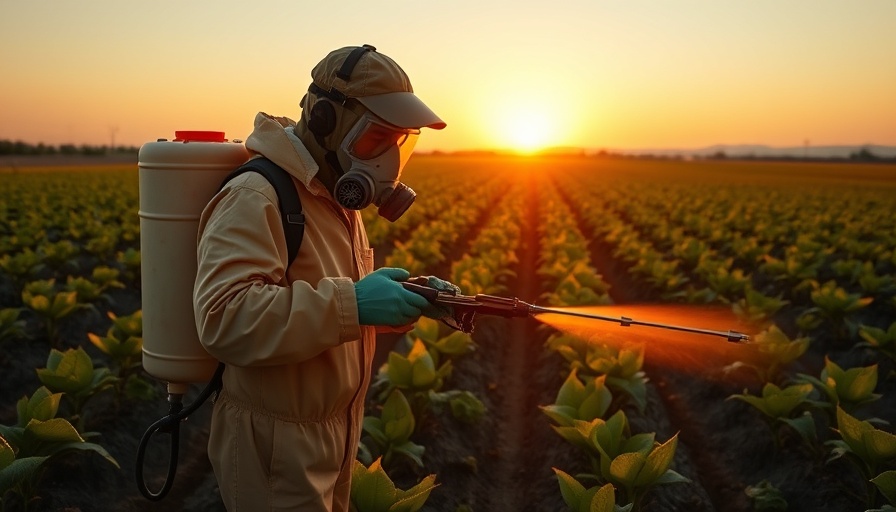
Unveiling the Risks of Diquat: A Deeper Dive
The investigation into the harmful effects of diquat brings to light significant health concerns that resonate in agricultural practices. Diquat is increasingly being favored over glyphosate, despite evidence that suggests it may pose even greater health risks. This shift in herbicide preference raises urgent questions about environmental regulation and public health safety. Experts, particularly from the Center for Biological Diversity, emphasize that the chemical’s impact extends beyond crop management; it can also lead to severe health consequences for humans.
The Gut-Brain Connection: Why This Matters
The human gut microbiome plays a crucial role in overall health, influencing everything from digestion to mental health. Diquat's devastating effects on gut bacteria highlight a significant threat not only to physical health but also potentially cognitive functions. With the herbicide disrupting the microbial balance, immune functions can become compromised, leading to inflammation and a higher risk of chronic diseases. The notion that what we consume—both food and chemicals—affects our gut bacteria is increasingly important, as is the understanding of how these disruptions can reverberate through other systems in our body.
International Perspectives: A Global Stand Against Diquat
While the U.S. Environmental Protection Agency (EPA) hesitates to ban diquat, many countries are already acting decisively to protect public health. The European Union, China, and the UK have implemented bans on this toxic herbicide, advocating for safer agricultural practices. This international action underscores the discrepancy in regulatory approaches, prompting discussions about the efficacy and ethical implications of chemical-based farming practices. Such contrasting stances not only reflect varying national priorities regarding health but spark dialogue on sustainable agriculture's role.
What Lies Ahead: Future Implications of Diquat Usage
The persistent use of diquat may have long-term implications for both the environment and human health. As research evolves, it could lead to increased advocacy for stricter regulations and alternative methods for weed control that do not compromise safety. Anticipating public demand for safe agricultural products, there is an opportunity for innovation in biopesticides and organic farming practices. By shifting focus to sustainable options, the agricultural industry may cultivate not only healthier crops but healthier communities as well.
Call to Action: Protecting Your Health
Given the grave findings surrounding diquat and its impact on health and the environment, educating yourself and advocating for safer practices is essential. Explore organic options for weed control in your garden and consider supporting legislation aimed at banning harmful chemicals. By prioritizing eco-friendly choices, you contribute to a movement towards a healthier planet.
 Add Row
Add Row  Add
Add 




Write A Comment